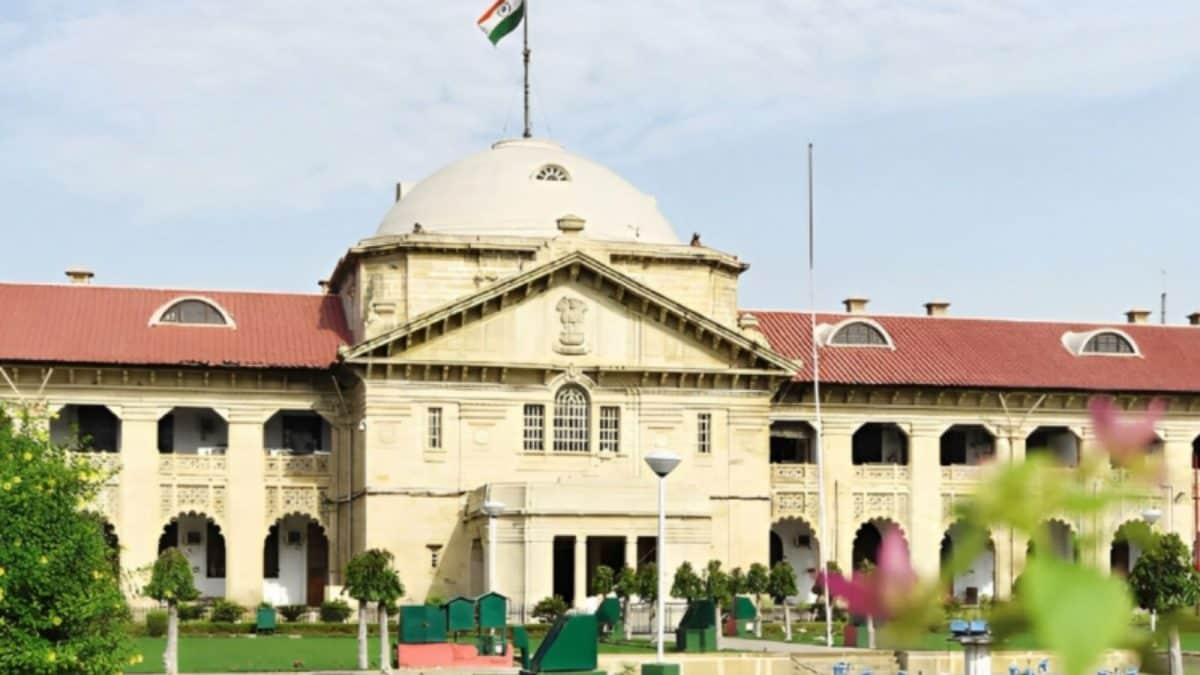Last Updated:
The court underscored that the intent behind Section 24 of the Hindu Marriage Act is to ensure a financially weaker spouse is not left destitute or handicapped during litigation

Allahabad High Court (File pic)
The Allahabad High Court has ruled that a spouse cannot escape his obligation to pay maintenance pendente lite merely because divorce proceedings have been stayed.
The bench of Justice Manish Kumar Nigam dismissed a plea by Ankit Suman, who had challenged recovery proceedings initiated by his wife for arrears running into Rs 2.5 lakh.
Recommended Stories
The case began in 2018, when Suman filed for divorce before the family court in Pilibhit. During the proceedings, his wife, Neeraj Saini, sought interim maintenance under Section 24 of the Hindu Marriage Act, 1955. The family court initially rejected her plea in 2020. However, the High Court, in 2021, reversed that decision and ordered Suman to pay Rs. 10,000 per month to his wife and an equal amount to their minor daughter, besides Rs. 30,000 towards litigation costs.
Unhappy with this order, Suman moved the Supreme Court. In 2022, the apex court slightly modified the award, reducing the daughter’s entitlement to Rs. 5,000 per month but otherwise upholding the High Court’s decision. The payments were to be made from the date of the wife’s original application.
When arrears piled up, Saini filed an execution petition before the family court, claiming dues of Rs. 2.5 lakh as of August 2024. The court issued a recovery warrant, which Suman challenged in the High Court. His central argument was that since the High Court had stayed the divorce case in 2023 on his wife’s transfer petition, the proceedings were no longer “pending,” and maintenance should not accrue during this period.
The High Court rejected this line of reasoning outright. Justice Nigam drew a clear distinction between a “stay” and “quashing” of proceedings. While quashing nullifies a case entirely, a stay only halts its progress temporarily without affecting its existence.
Mere stay of proceedings will not amount to their termination, absolving the petitioner of his liability, the judge observed.
The court underscored that the intent behind Section 24 of the Hindu Marriage Act is to ensure that a financially weaker spouse is not left destitute or handicapped during litigation. The provision, the judge said, is designed to prevent one party from gaining an upper hand simply due to superior financial strength.
Justice Nigam also referred to precedents from other high courts and the Supreme Court, which have consistently held that maintenance pendente lite continues as long as matrimonial proceedings are alive in any form, be it at the trial, appellate, revisional, or even transfer stage.
About the Author

Salil Tiwari, Senior Special Correspondent at Lawbeat, reports on the Allahabad High Court and courts in Uttar Pradesh, however, she also writes on important cases of national importance and public interests fr…Read More
Salil Tiwari, Senior Special Correspondent at Lawbeat, reports on the Allahabad High Court and courts in Uttar Pradesh, however, she also writes on important cases of national importance and public interests fr… Read More
- Location :
Prayagraj, India, India
Loading comments…
Read More




